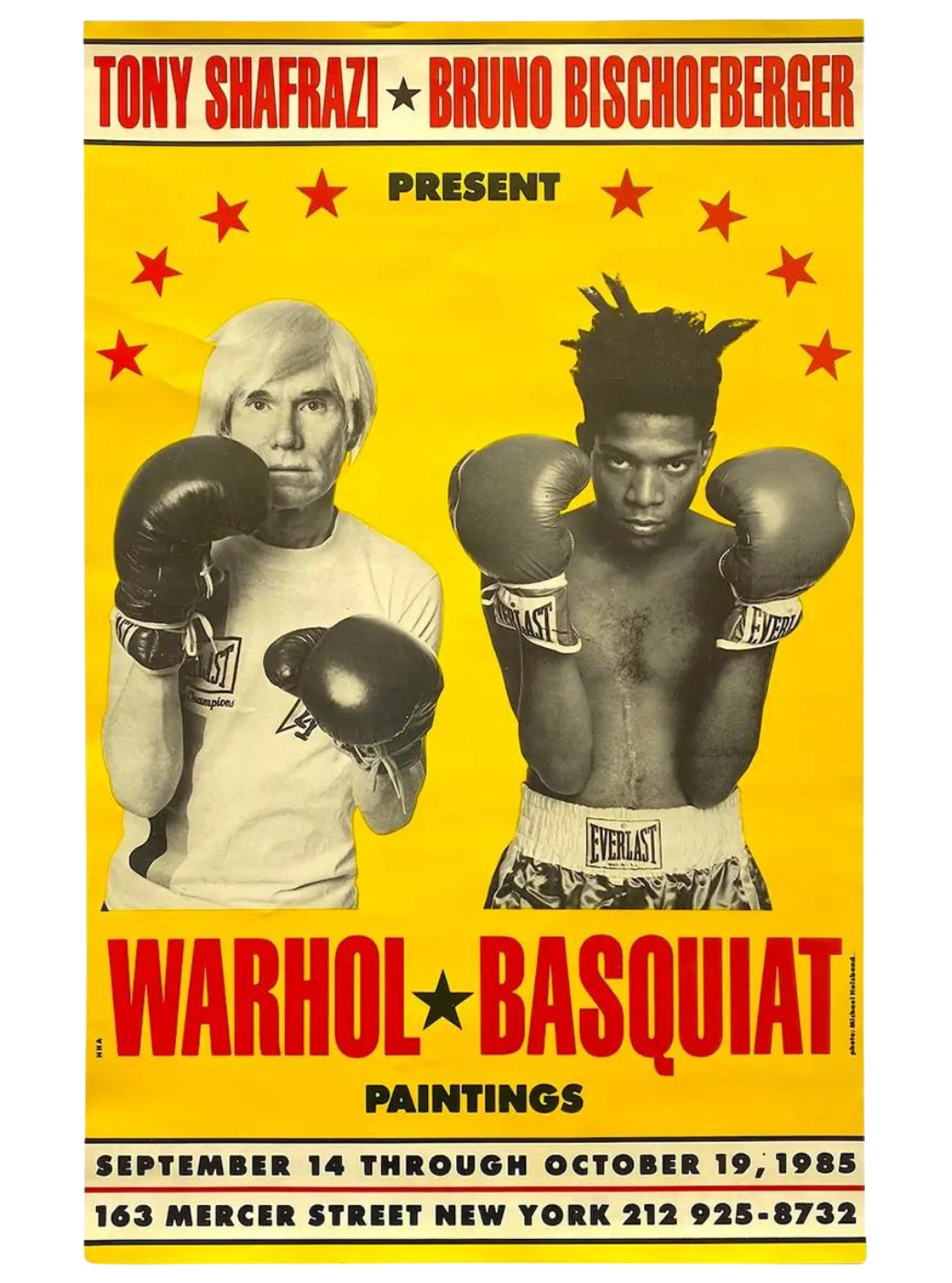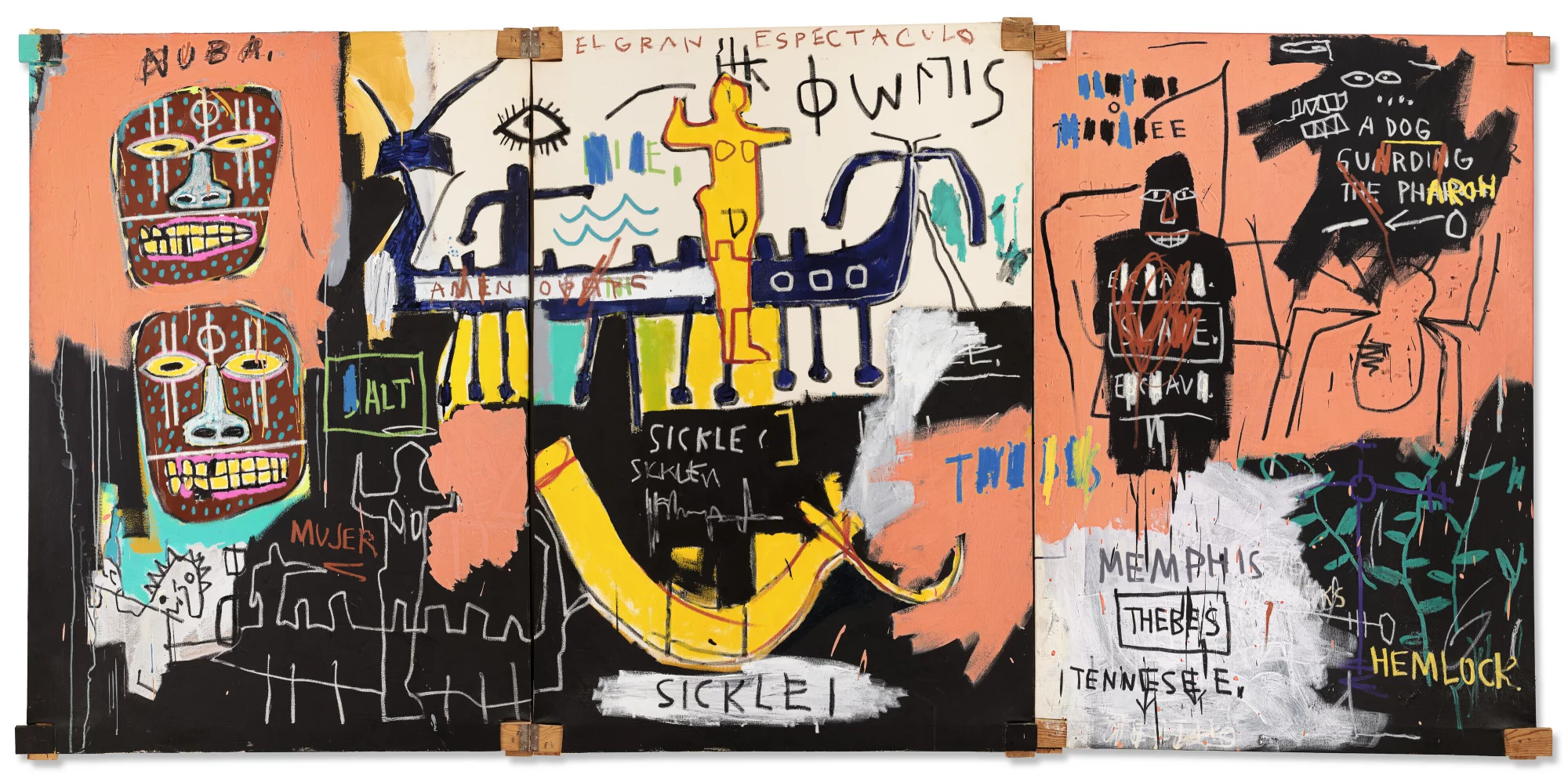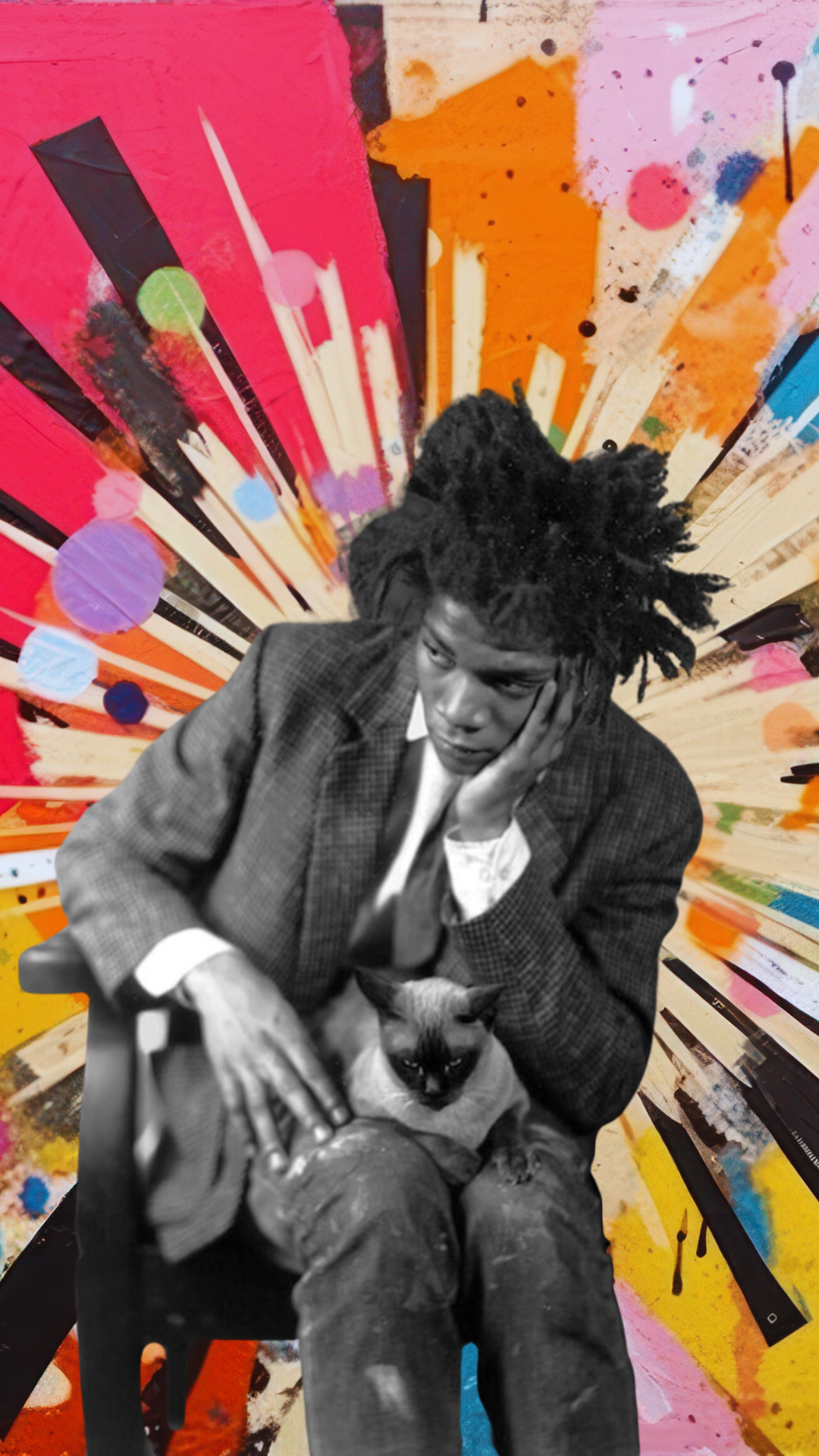Jean-Michel Basquiat
A Symphony of Symbols and Colors
A Revolutionary in Art
In a burst of vibrant colors and powerful symbols, Jean-Michel Basquiat's art speaks volumes. His work, a fusion of graffiti, symbolism, and expressionism, brought a fresh perspective to the art world, challenging conventions and inviting contemplation.
Early Life and Artistic Emergence
Basquiat's journey began in the multicultural streets of Brooklyn, New York. Born to a Haitian father and a Puerto Rican mother in 1960, his diverse heritage became a cornerstone of his artistic identity. Emerging from street graffiti under the moniker "SAMO," Basquiat's raw and unapologetic style quickly captured the attention of the New York art scene.
Collaboration with Andy Warhol
“It was a physical conversation happening in paint instead of words.”
Keith Haring
Exhibition Poster 1985
The collaboration between Jean-Michel Basquiat and Andy Warhol represents a significant chapter in the world of modern art, bringing together two distinct artistic forces. This partnership blended Warhol's polished pop art aesthetics with Basquiat's spontaneous and raw expression, creating a unique visual dialogue.
China Paramount, 1984 and Collaboration, 1984-85
Their joint works, characterized by Warhol's screen-printed elements and Basquiat's dynamic figures and symbols, showcase a fascinating interplay of their styles. This collaboration not only bridged two artistic generations but also sparked a dynamic energy, leading to creations that were complex, innovative, and deeply reflective of their individual artistic identities.
Artistic Milestones:
Basquiat's work, characterized by its focus on dichotomies such as wealth versus poverty and integration versus segregation, struck a chord. His notable pieces like "Hollywood Africans" and "Untitled (Boxer)" are celebrated for their insightful commentary on racial and class struggles.
Hollywood Africans
These works, rich in symbolism and raw expression, delve into themes of race, identity, and social structures. They mirror the complexities of the African American experience, capturing its vigor, struggles, and triumphs. Basquiat's art, thus, becomes a vivid narrative, weaving together personal stories with broader cultural and societal reflections.
El Gran Espectaculo (The Nile) - also know as The History of Black People, 1983
“I am not a black artist, I am an artist.”
Jean-Michel Basquiat
Jean-Michel Basquiat in 1982.© James Van der Zee Archive, The Metropolitan Museum of Art
Cultural Influence, Legacy & Final Thoughts
50 cent Piece, 1983. From The Daros Suite of Thirty-Two Drawnings (WikiArt.org)
A visionary of his time, Basquiat used his art to navigate and narrate the complexities of identity, culture, and society. His influence extended beyond the canvas, impacting the cultural discourse around black identity and representation in the arts. His art remains a powerful testament to the capacity for creativity to challenge societal norms and advocate for change.








